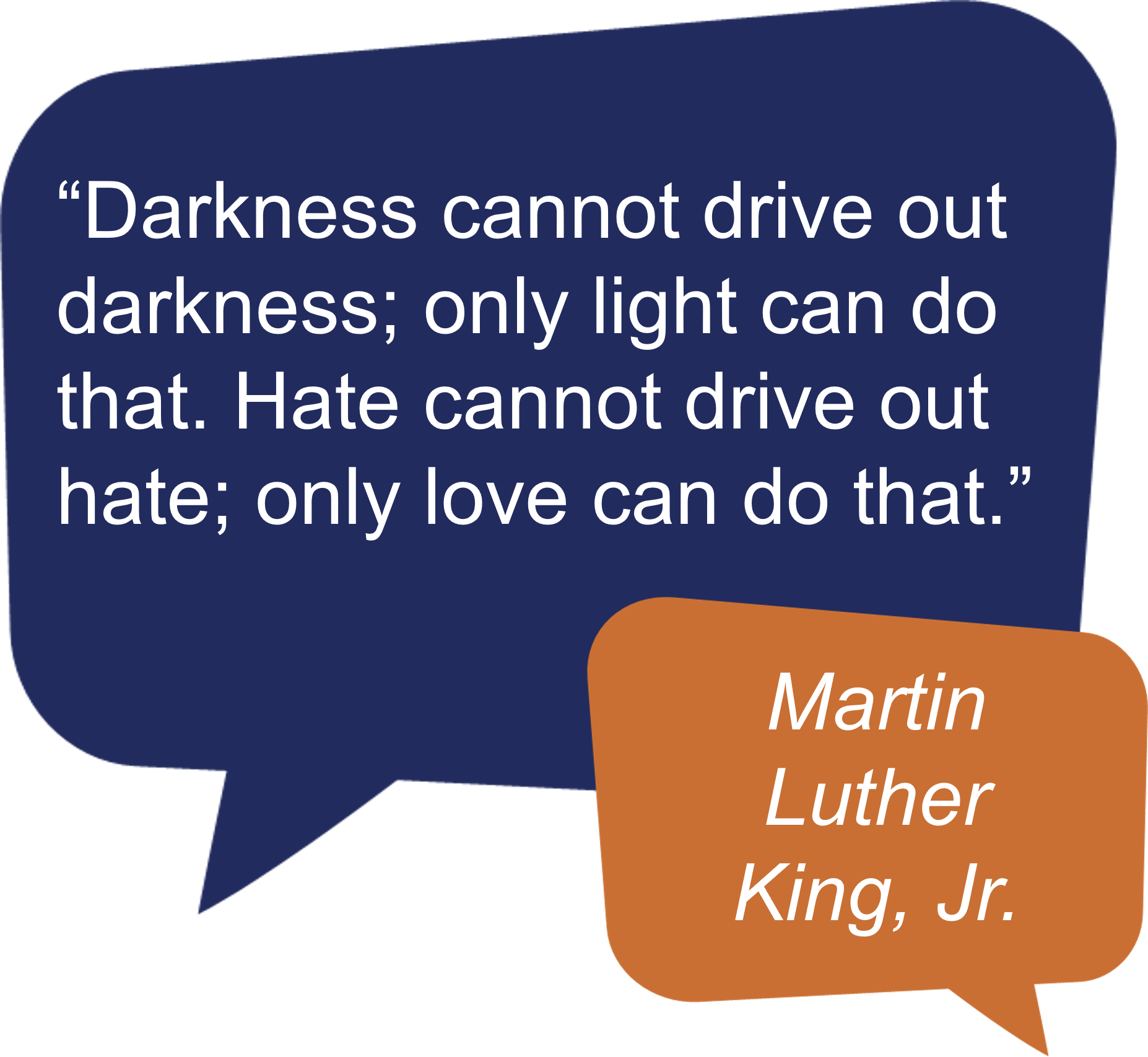
CHAPTER 7

Building up your training persona!
When discussing about critical thinking in the fight against online hate speech, both non-formal and formal educators should share common skills and characteristics, in order to ensure a smooth process with successful outcomes. In order to not make it more complicated, we have prepared a short list with some of the most important skills that NFE and FE providers should have:
A. Facilitation skills
Facilitation includes all the skills required for running a successful training, regardless of the size of the target group or the context of the training.
– Be familiar with the training flow and all activities included in your daily program – if you don’t feel comfortable with it, neither will your target group!
– Engage non-motivated or negative participants – keep a plan B for difficult cases were participants show negativity towards the process or are not willing to actively be involved.
– Manage dominant participants – it is important to ensure that all participants have space and feel safe to express themselves, so be prepared to put some boundaries to those who tend to prevail over others!
B. Presentation skills
Either you are a youth worker or a teacher, you will be in the center of attention several times. Therefore it is important to acquire high presentation skills in order to keep your audience motivated:
– Be positive – smile a lot, be open and approachable. The mood of the group depends on you!
– Speak clearly and with a confident tone of voice – no one likes listening to someone who they can barely hear or understand.
– Keep eye contact in order to engage your audience and keep their attention.
– Include the participants in the process if you want to avoid them falling asleep in the middle of the session!
C. Group dynamics
Feeling the sense of the group and being flexible enough to adjust the learning flow to their needs is vital.
– Manage conflict – delicate topics such as hate speech and discrimination are prone to causing disagreements, arguments or even fights! Be prepared!
– Bring back the discussion to the topic – issues related to human rights and discrimination are broad and can lead to general conversations, irrelevant to the aim of your training.
– Keep up the spirit – no matter how interactive or interesting a program is, there might be moments of tiredness or boredom. Make sure you involve a lot of energizers to keep the group spirit up!
D. Ethics
You are the ones who will safeguard that certain values are respected by the team and the participants during your process.
– Lead by example – be on time, well prepared and well behaved.
– Provide accurate content – or you will lose respect by your participants and ruin your efforts.
– Show professionalism – be well prepared and ready to respond in any question addressed by your participants or guide them to the right source of information.
– Respect your colleagues, participants, as well as their choices and decisions, even if you don’t personally agree with them.
– Promote the safety of participants (physical and psychological).
– Set boundaries – it is important to develop a good bond with participants (especially in long term trainings), however make sure that you put some limits between professional and private life.
E. Leadership
…which does not mean you becoming the leaders of the process and participants your underlings…
– Be self confident – be sure about what you are doing and project this verbal and non-verbal assertiveness to your audience.
– Manage delicate conversations by sensing the indicators of future conflict or discontent and keeping a certain level of safety for all participants.
– Manage your stress – and the stress of others! Don’t allow your anxiety to overrule your other skills and you will thrive for sure!
THIS IS THE END!
Coming to this point of the Guide, we would like to congratulate you for following this journey, gaining the necessary knowledge to dive deep into the fight against online hate speech by preventing it through critical thinking, as well as raising your capacities in promoting this process to your target group in the outside world.
And before leaving…keep one thing in mind!
